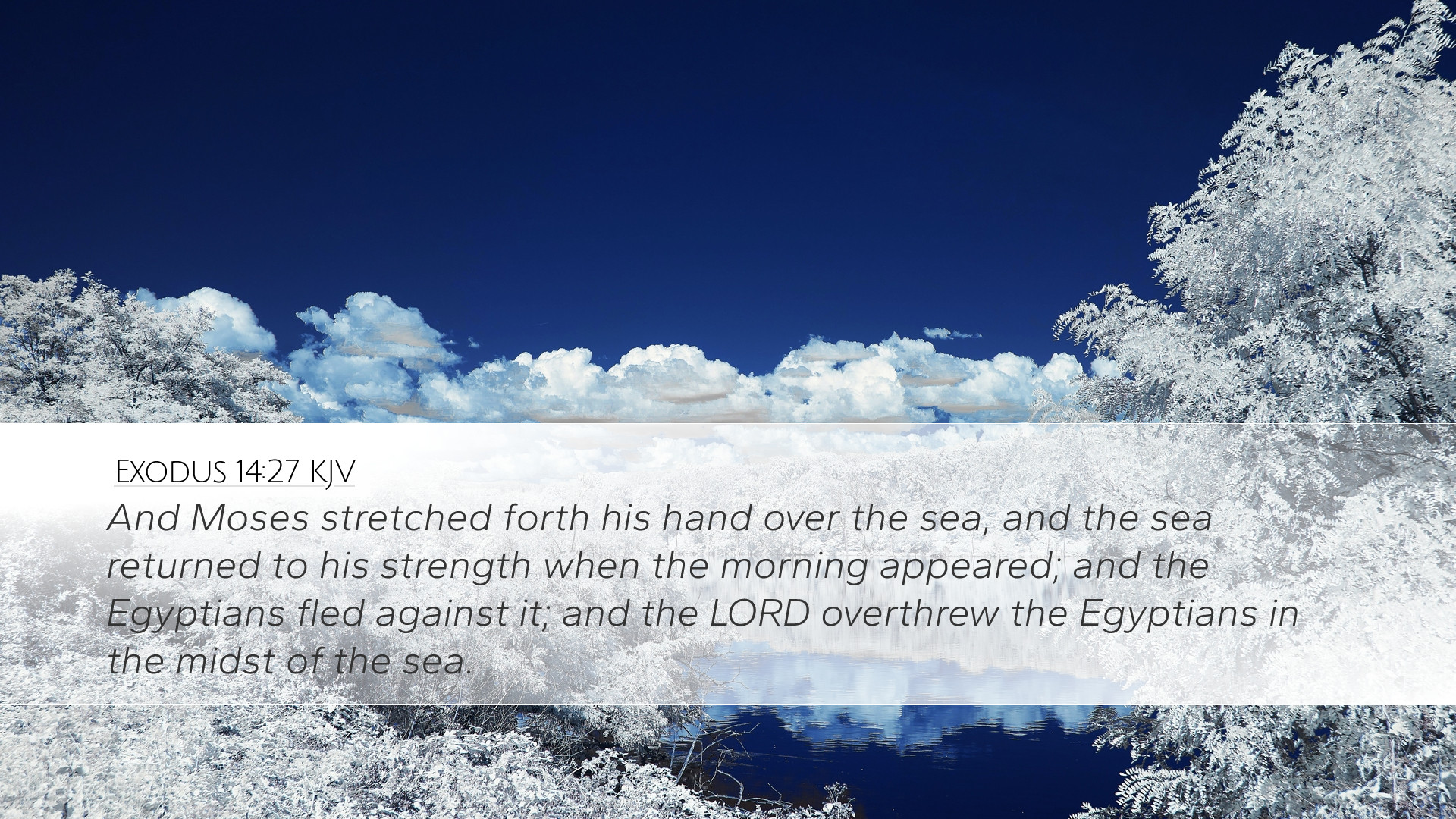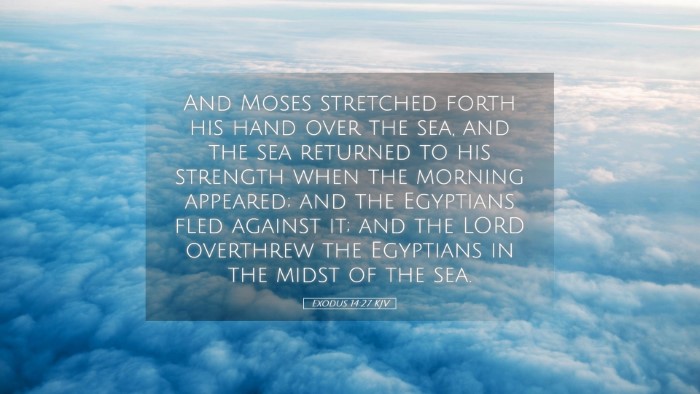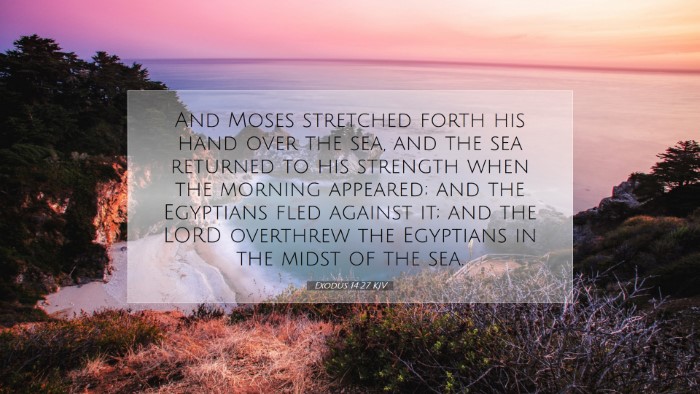Exodus 14:27 - Commentary and Insights
Exodus 14:27 states, "And Moses stretched forth his hand over the sea, and the sea returned to his strength when the morning appeared; and the Egyptians fled against it; and the Lord overthrew the Egyptians in the midst of the sea." This verse marks a pivotal moment in the narrative of the Israelites' Exodus from Egypt, signifying divine intervention and the culmination of God's deliverance.
Overview of Exodus 14
Exodus 14 describes one of the most dramatic events in the biblical story—the crossing of the Red Sea. The Israelites, having fled slavery in Egypt, find themselves trapped between the advancing Egyptian army and the vast waters of the sea. Moses, under God's directive, leads the people through the miraculous parting of the waters, demonstrating God's sovereignty and power.
Analysis of Exodus 14:27
This verse plays a critical role in demonstrating various themes, such as deliverance, faith, and judgment. Different aspects of this verse can be drawn from the insights of public domain commentaries.
Moses' Authority and Responsibility
Moses' actions: Moses stretching forth his hand represents an act of faith and obedience. As noted by Matthew Henry, this act signifies not only the trust Moses had in God's promise but also his leadership role among the Israelites. It illustrates the necessity of human agency working in tandem with divine power.
The Natural Phenomenon and Divine Intervention
Returning to its strength: The phrase "returned to his strength" suggests that the natural order was momentarily suspended, a theme emphasized by Albert Barnes. This indicates a direct act of God, wherein the natural laws of the sea are restored, signifying control over creation. The timing of the morning emphasizes God’s provision and the light of a new day symbolizing hope and deliverance.
The Fate of the Egyptians
God’s judgment: The latter part of the verse, "the Lord overthrew the Egyptians in the midst of the sea," conveys a profound theological message regarding divine judgment. Adam Clarke argues that this act serves not only as an affirmation of the Israelites’ deliverance but also as a severe judgment against the Egyptians for their oppression and the resistance posed toward God's will. The mention of fleeing demonstrates the panic instilled by God's intervention, underscoring how those who oppose God will ultimately fail.
Theological Implications
Several theological implications can be derived from this verse:
- Divine Sovereignty: The verse reflects God's sovereign control over both natural and supernatural realms.
- Faith and Leadership: Moses exemplifies the leader's role to guide and inspire faith during challenging times.
- Judgment and Mercy: While God delivered the Israelites, He simultaneously executed judgment on their oppressors, illustrating the duality of divine justice.
Practical Applications for Believers
This passage can be applied to various aspects of a believer's life:
- Faith in Crisis: Believers are reminded to maintain faith in God, particularly during dire circumstances when the way forward seems blocked.
- God’s Timing: The morning signifies that God has a plan and that His timing, although it may appear delayed, is always perfect.
- Reflection on Justice: The reflections on divine justice might encourage believers to trust in God's righteous judgment in their own lives as they face injustice.
Conclusion
Exodus 14:27 encapsulates a moment of divine triumph that is foundational for understanding God's character and covenant with His people. The insights garnered from the commentaries underscore the complexity of the narrative, emphasizing faith, divine intervention, and the magnitude of God's judgment. The multifaceted understanding of this particular verse serves as a rich resource for pastors, students, theologians, and Bible scholars alike, guiding deeper studies into God's nature and His working through history.


